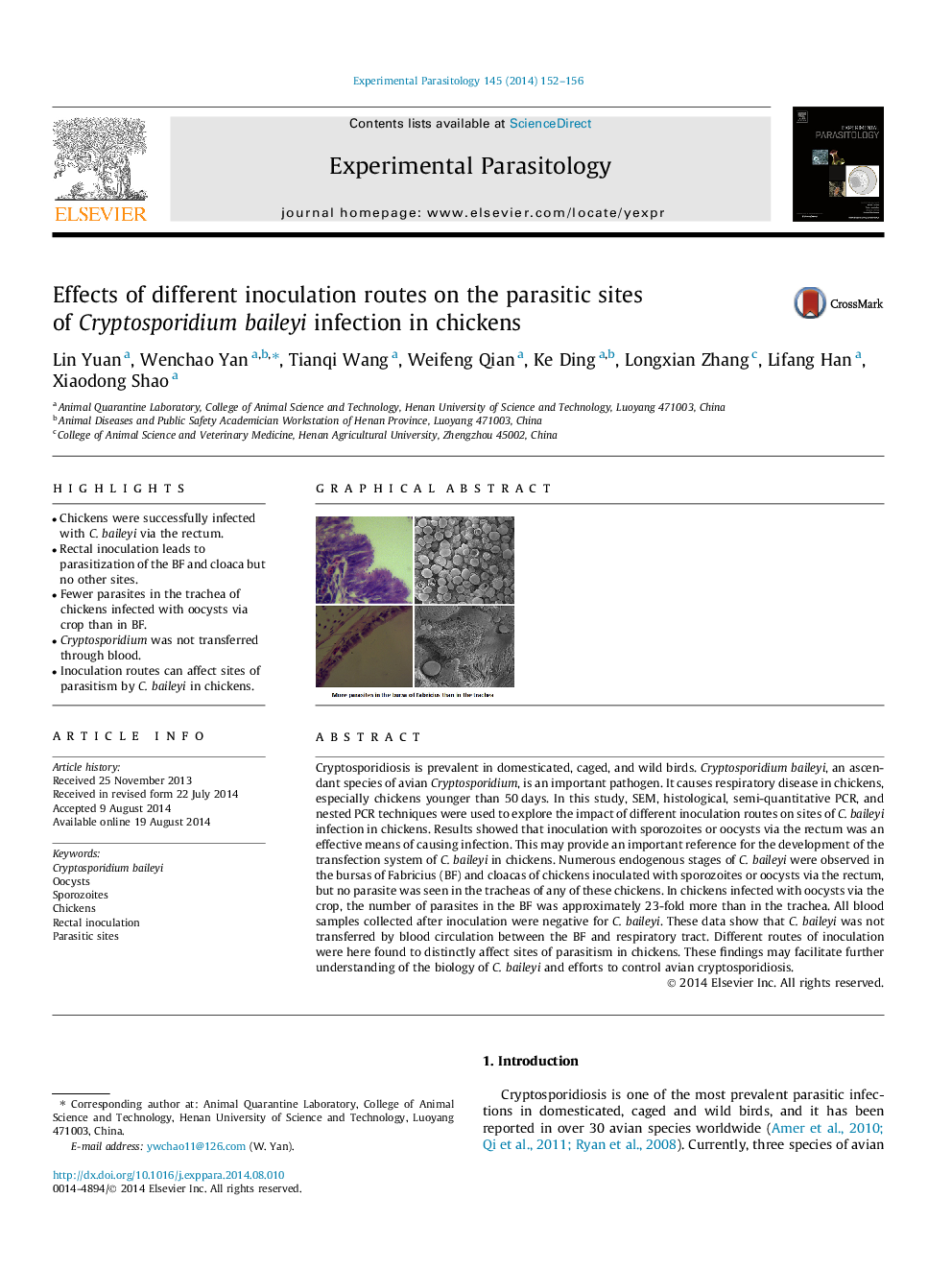| Article ID | Journal | Published Year | Pages | File Type |
|---|---|---|---|---|
| 4371105 | Experimental Parasitology | 2014 | 5 Pages |
•Chickens were successfully infected with C. baileyi via the rectum.•Rectal inoculation leads to parasitization of the BF and cloaca but no other sites.•Fewer parasites in the trachea of chickens infected with oocysts via crop than in BF.•Cryptosporidium was not transferred through blood.•Inoculation routes can affect sites of parasitism by C. baileyi in chickens.
Cryptosporidiosis is prevalent in domesticated, caged, and wild birds. Cryptosporidium baileyi, an ascendant species of avian Cryptosporidium, is an important pathogen. It causes respiratory disease in chickens, especially chickens younger than 50 days. In this study, SEM, histological, semi-quantitative PCR, and nested PCR techniques were used to explore the impact of different inoculation routes on sites of C. baileyi infection in chickens. Results showed that inoculation with sporozoites or oocysts via the rectum was an effective means of causing infection. This may provide an important reference for the development of the transfection system of C. baileyi in chickens. Numerous endogenous stages of C. baileyi were observed in the bursas of Fabricius (BF) and cloacas of chickens inoculated with sporozoites or oocysts via the rectum, but no parasite was seen in the tracheas of any of these chickens. In chickens infected with oocysts via the crop, the number of parasites in the BF was approximately 23-fold more than in the trachea. All blood samples collected after inoculation were negative for C. baileyi. These data show that C. baileyi was not transferred by blood circulation between the BF and respiratory tract. Different routes of inoculation were here found to distinctly affect sites of parasitism in chickens. These findings may facilitate further understanding of the biology of C. baileyi and efforts to control avian cryptosporidiosis.
Graphical abstractFigure optionsDownload full-size imageDownload as PowerPoint slide
